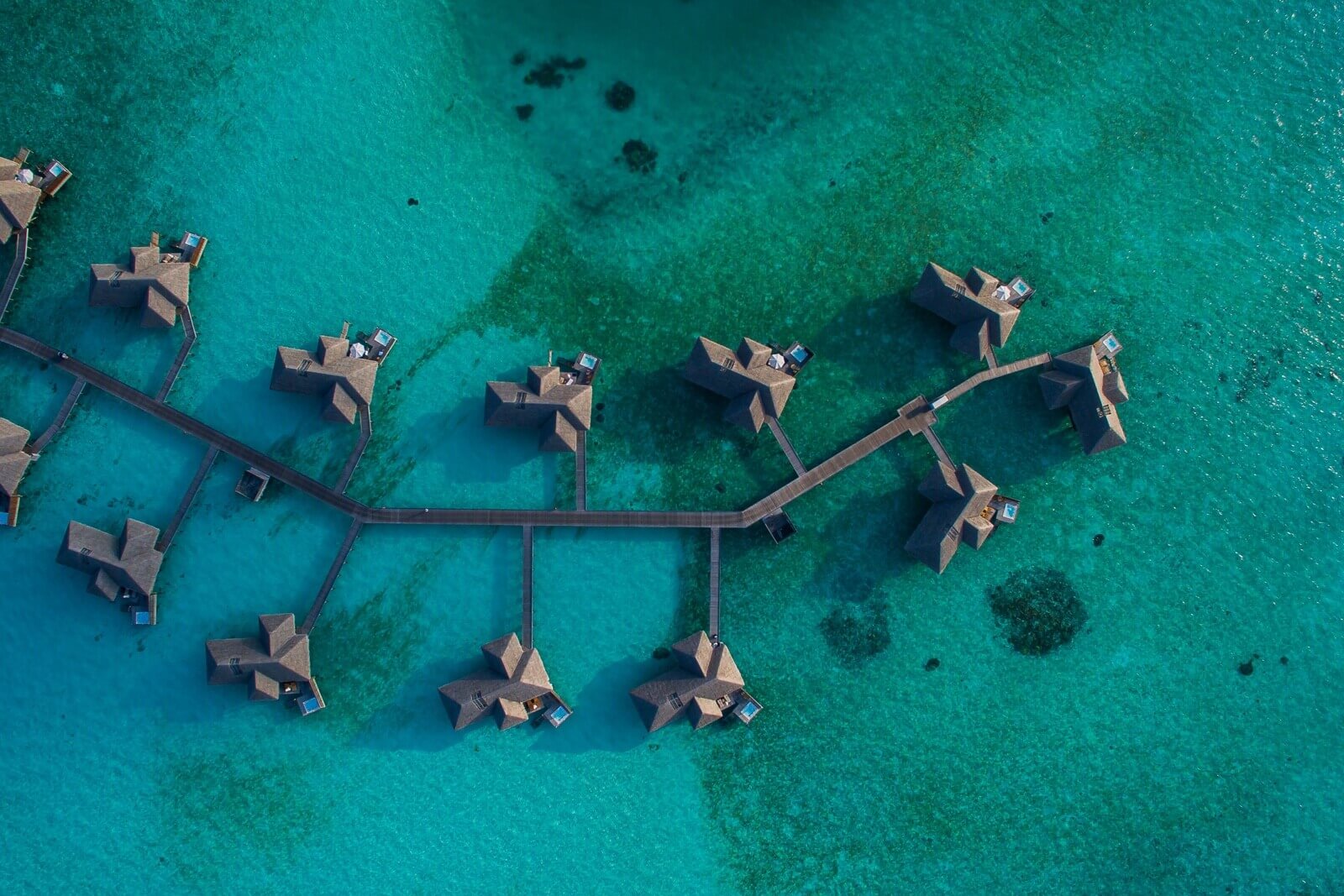
We meet our partners, Glimmer of Hope (AGOH) and Oromia Development Association (ODA) at our hotel at 8:30 and we depart for the field immediately for the 2 hour+ drive to the Mendida area, NE of Addis Ababa. Water to Thrive began the implementation of 22 water projects in April of 2012 with ODA. Over the next two months, ODA will be complete the construction and community training for all 22 projects.
As we enter the countryside, it becomes immediately obvious that we are in the harvest time for this part of Ethiopia. We pass many field of wheat, barley and teff either already cut and stacked and in the process. The farmers will manually harvest their crops, often helping one another and they gathered in stacks that are 8-10 feet tall for storage.
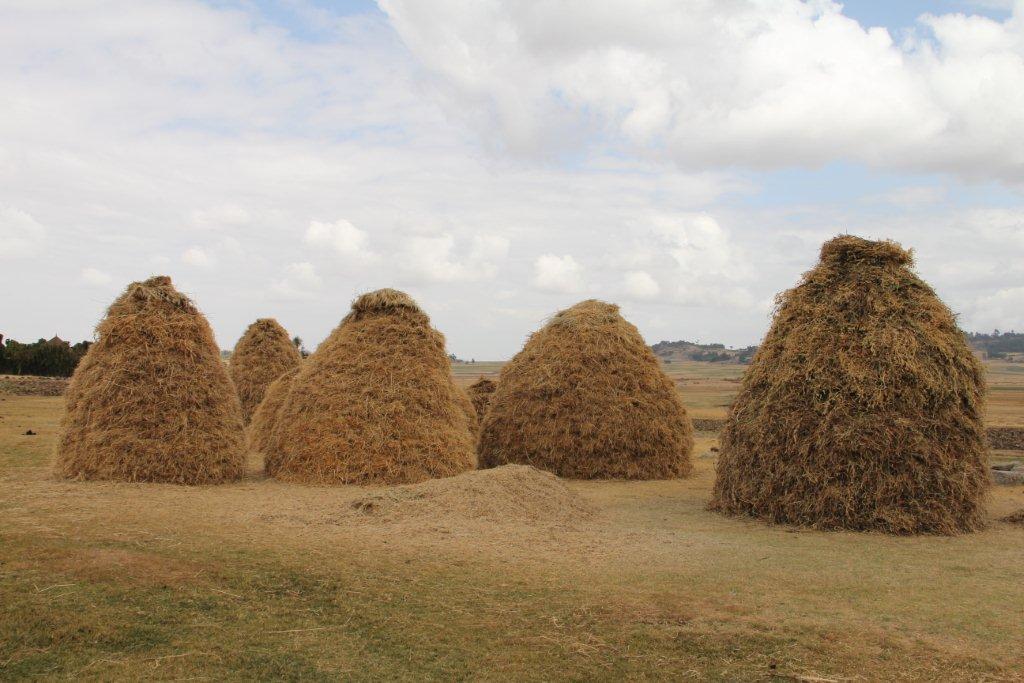
The preparation of the grain is done manually by the farmer, separating the chafe the old fashion way by pitching in the air to let the wind do the separation.
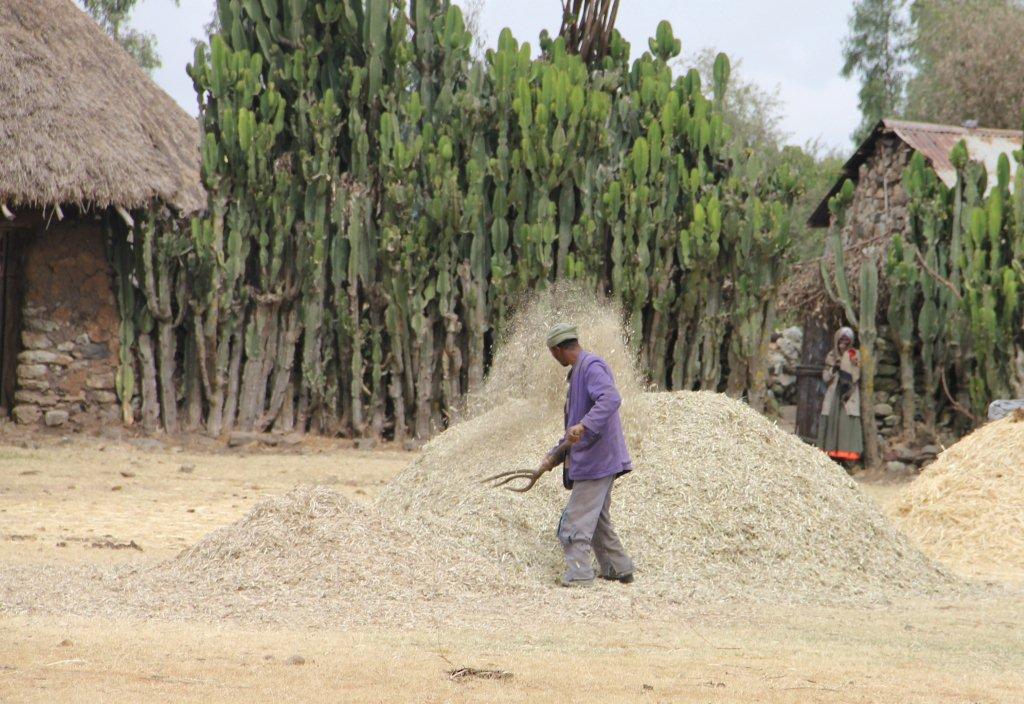
On tap for the day is visiting 3 hand dug wells (HDW) that have just been completed for their communities. Literally, in the last few days. The communities are Daye Abdella, Chitu and Temamo. These locations are remote without infrastructure and electricity, often many miles from the closest paved road.
When we arrive at Chitu, we are reminded of their stark reality just a few short days ago. Not far from the water project is an open spring water hole that was their only previous source of water and it was shared by people and animals side by side.
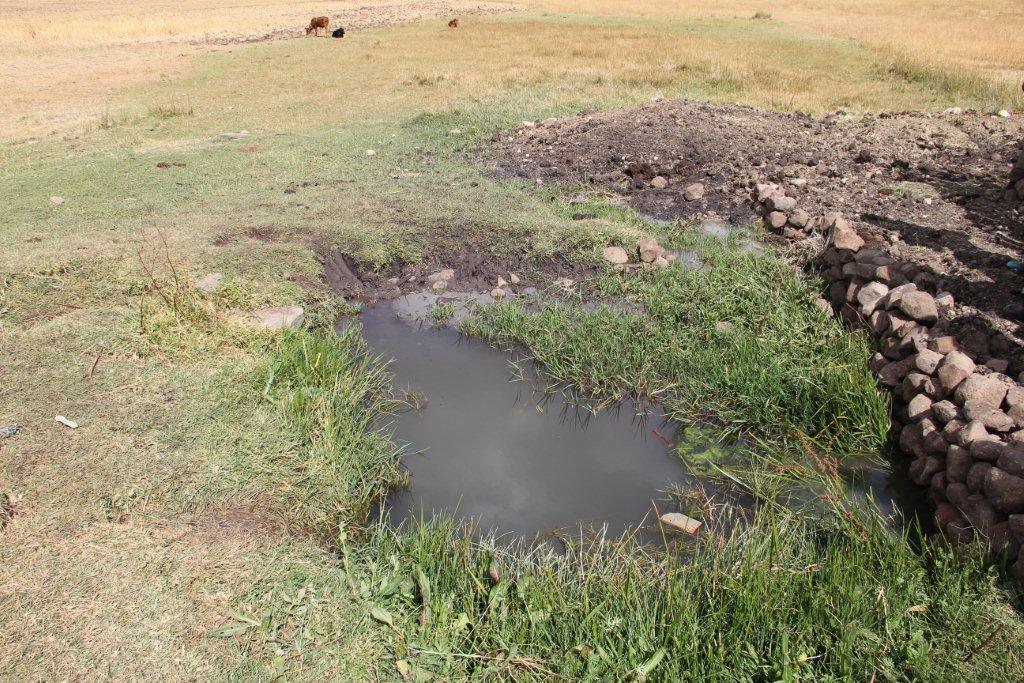
Unprotected, the source is contaminated by runoff, feces and stagnation. Since we are just a few months after the height of the rainy season, there is plenty of surface water, but in just few additional months, this source will dry up, which was forcing the community to walk farther for their water. These new projects cut the walking distances for the communities to an average of 30 minutes.
At the heart of the each project is a community appointed Water Council, usually totaling 6-8 community members, of which half will be women. The opportunity to serve their community will often be the first time the women have had a leadership role. The Council manages the project, hires a guard, organizes the health and sanitation training and collects maintenance funds from the families. They insure the projects sustainability for the community.
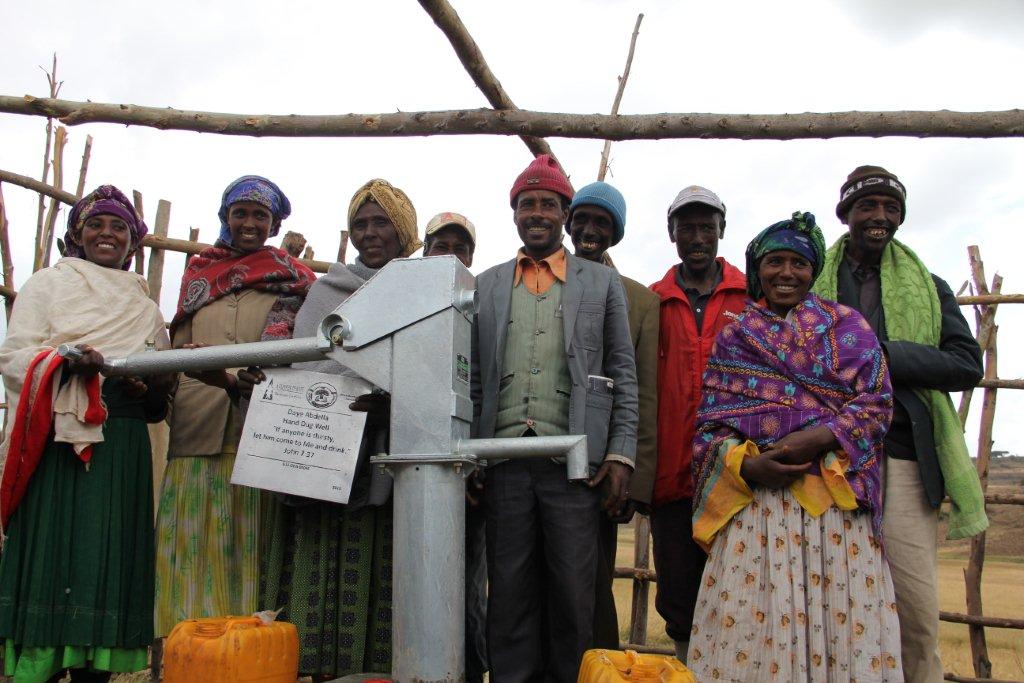
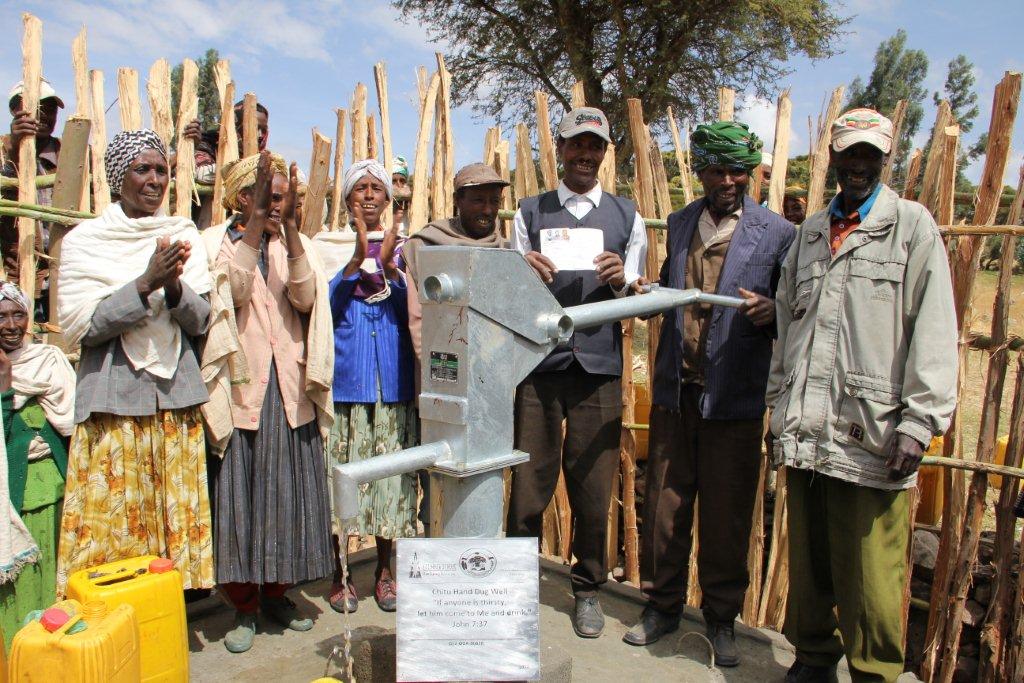
Shown here are the Water Council members at Daye Abdella and Chitu. I love the big smiles……they are heartfelt for they now know that a better life for the community is on the way. Notice the man behind pump (3rd from the right) at Chitu. He is holding their saving passbook for the project. He was very proud that they already had over 300 birr (about $10) collected from the community and the project had only been operational only a few short days. This money can only be used for the maintenance and operation of the well.
We are always greeted with warm smiles and grateful hearts, and it was no different in Mendida. The communities are always very grateful for the commitment of W2T supporters and sponsors who make these projects possible.
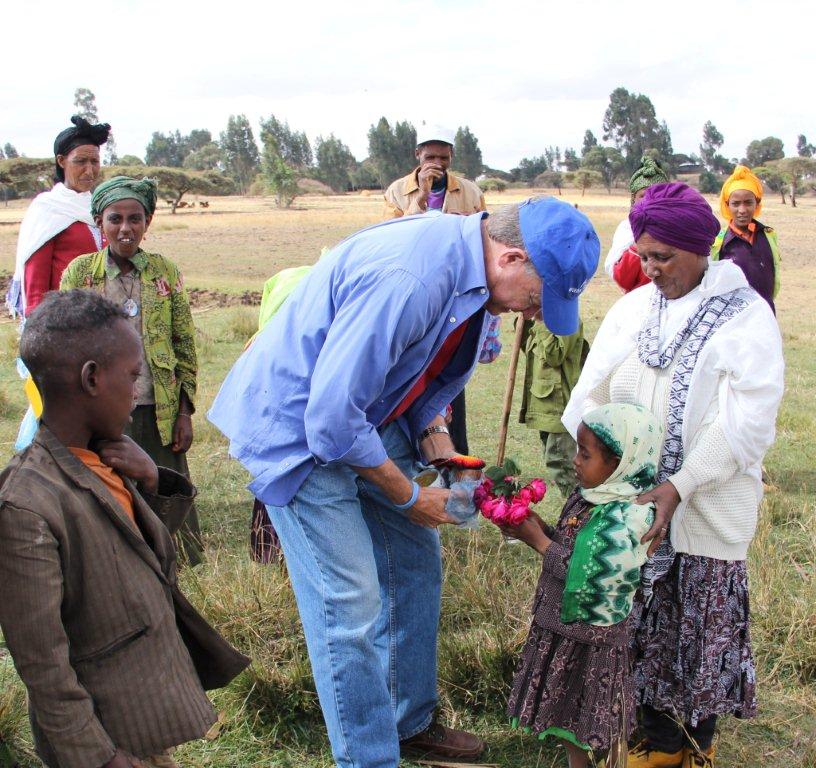
At Temamo, I was greeted by a 60 year old grandmother and her granddaughter who presented gifts of honey and flowers on behalf of the community. With the gift of honey, she added that she “asks God to bless us and wishes us a sweet life”.
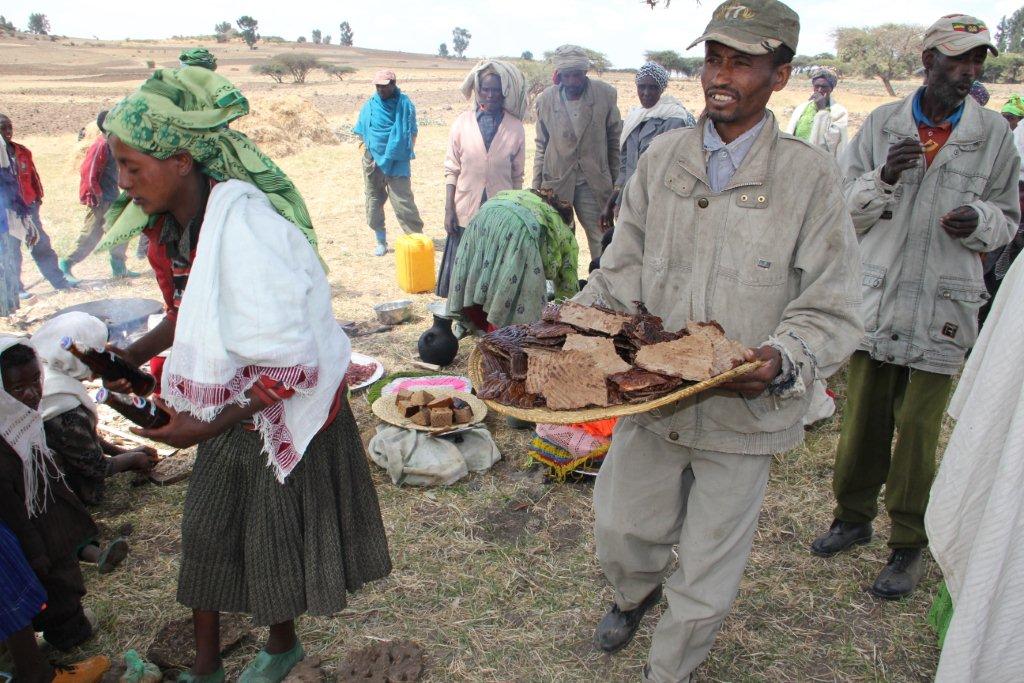
At Chitu, after visiting the project and exchanging greetings, the community shared food together especially prepared for its guest, It included ingera (Ethiopian bread), roasted goat, and other baked goods…..and yes even a Pepsi or two.
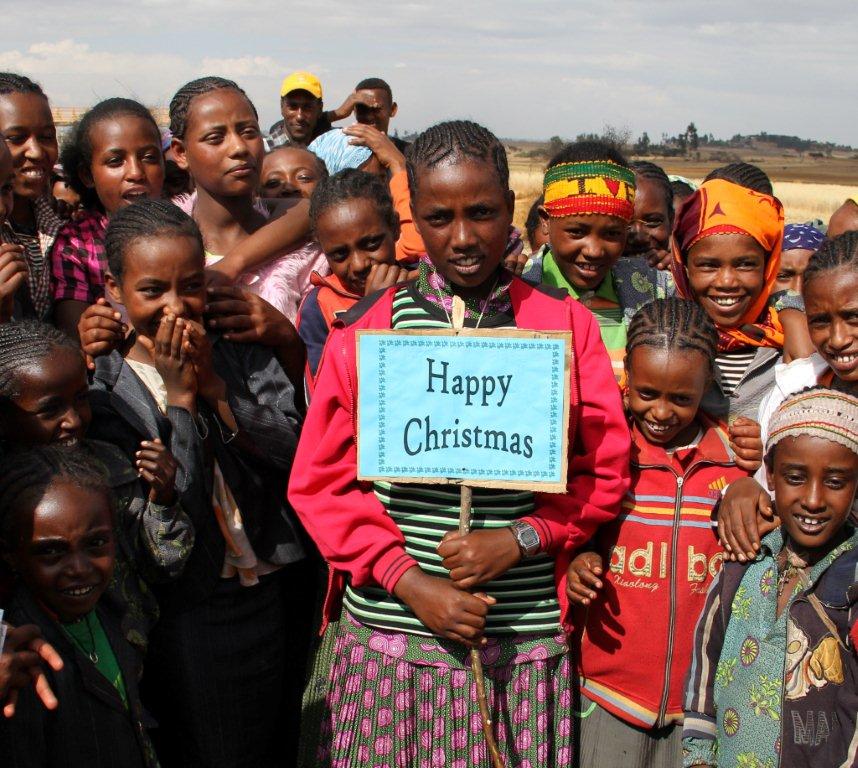
Just a short distance from the Temamo project, is the local school that also uses the water project as the source for the students and teachers. We were greeted by much singing and dancing by the students and even the teachers joined in. They also sent a very special Christmas greeting to all of the W2T supporters.
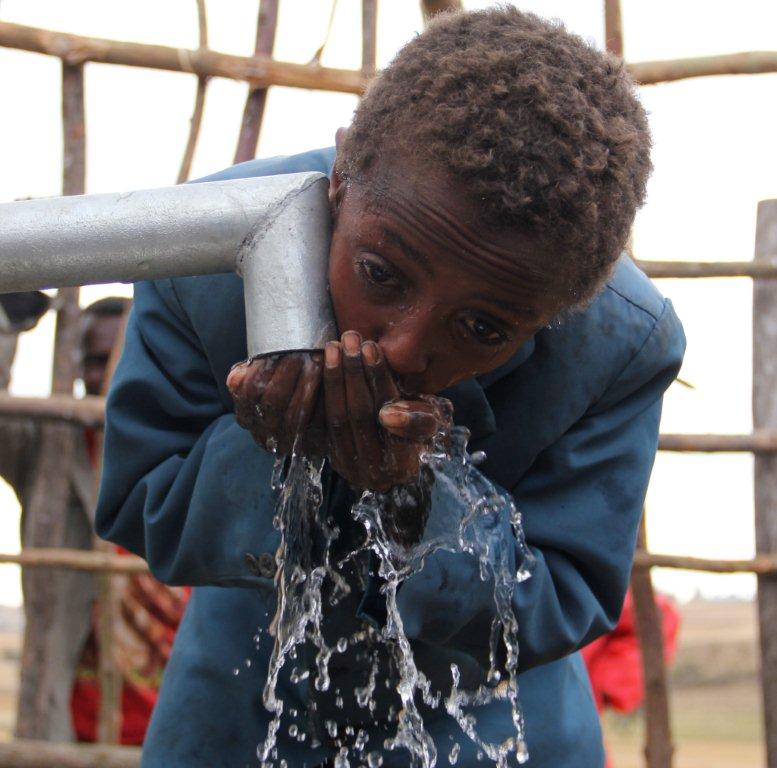
We meet our partners, Glimmer of Hope (AGOH) and Oromia Development Association (ODA) at our hotel at 8:30 and we depart for the field immediately for the 2 hour+ drive to the Mendida area, NE of Addis Ababa. Water to Thrive began the implementation of 22 water projects in April of 2012 with ODA. Over the next two months, ODA will be complete the construction and community training for all 22 projects.
As we enter the countryside, it becomes immediately obvious that we are in the harvest time for this part of Ethiopia. We pass many field of wheat, barley and teff either already cut and stacked and in the process. The farmers will manually harvest their crops, often helping one another and they gathered in stacks that are 8-10 feet tall for storage.

The preparation of the grain is done manually by the farmer, separating the chafe the old fashion way by pitching in the air to let the wind do the separation.

On tap for the day is visiting 3 hand dug wells (HDW) that have just been completed for their communities. Literally, in the last few days. The communities are Daye Abdella, Chitu and Temamo. These locations are remote without infrastructure and electricity, often many miles from the closest paved road.
When we arrive at Chitu, we are reminded of their stark reality just a few short days ago. Not far from the water project is an open spring water hole that was their only previous source of water and it was shared by people and animals side by side.

Unprotected, the source is contaminated by runoff, feces and stagnation. Since we are just a few months after the height of the rainy season, there is plenty of surface water, but in just few additional months, this source will dry up, which was forcing the community to walk farther for their water. These new projects cut the walking distances for the communities to an average of 30 minutes.
At the heart of the each project is a community appointed Water Council, usually totaling 6-8 community members, of which half will be women. The opportunity to serve their community will often be the first time the women have had a leadership role. The Council manages the project, hires a guard, organizes the health and sanitation training and collects maintenance funds from the families. They insure the projects sustainability for the community.


Shown here are the Water Council members at Daye Abdella and Chitu. I love the big smiles……they are heartfelt for they now know that a better life for the community is on the way. Notice the man behind pump (3rd from the right) at Chitu. He is holding their saving passbook for the project. He was very proud that they already had over 300 birr (about $10) collected from the community and the project had only been operational only a few short days. This money can only be used for the maintenance and operation of the well.
We are always greeted with warm smiles and grateful hearts, and it was no different in Mendida. The communities are always very grateful for the commitment of W2T supporters and sponsors who make these projects possible.

At Temamo, I was greeted by a 60 year old grandmother and her granddaughter who presented gifts of honey and flowers on behalf of the community. With the gift of honey, she added that she “asks God to bless us and wishes us a sweet life”.

At Chitu, after visiting the project and exchanging greetings, the community shared food together especially prepared for its guest, It included ingera (Ethiopian bread), roasted goat, and other baked goods…..and yes even a Pepsi or two.

Just a short distance from the Temamo project, is the local school that also uses the water project as the source for the students and teachers. We were greeted by much singing and dancing by the students and even the teachers joined in. They also sent a very special Christmas greeting to all of the W2T supporters.


About The Author: Meredith
More posts by Meredith